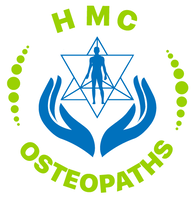|
By Kirby Edwards Hi HMC team! Recently I have been having a few discussions about anxiety and stress. So, I thought I would share some of my tools that I have in my tool kit. Please note, I am not a psychologist, doctor, counsellor, or psychiatrist. This is my ever-growing tool kit (and am open to more suggestions, the more tools the better!) If you feel like you need a little extra help, there are resources available including counsellors, psychologist, psychiatrists, lifeline, beyond blue and your GP. Your GP is the best avenue to pursue counsellors, psychologists and psychiatrists. And Lifeline and Beyond Blue are fully staffed with 24-hour hotlines So what is Anxiety..? Anxiety is our body’s way to alert us to danger. Short term it is a good thing because the body releases hormones that stimulate our sympathetic nervous system (fight or flight) and helps us to react to fearful or stressful situations quickly. Short term this is amazing! Long term, it is not ideal. Anxiety is a unique experience and can feel different for everyone. Some people may not have ever experienced it and some people may experience it but not know what it is. Be kind, you never know what someone is going through on the inside. While there are different types of anxiety and it is very individual, beyond blue talks about some common signs and symptoms including:
Here are some tools that may help you if you are experiencing any of the symptoms of anxiety: Breathe Breathing is your best friend, and a necessity. We know that our body is so clever that we can breathe without thinking, but when was the last time you took a conscious breath? Sometimes we forget to breathe or might find yourself even holding it. Let it go… a nice slow exhale. A deep breathe in and doubling your exhale stimulates your vagus nerve, which is a branch of your parasympathetic nervous system also known as our ‘rest and digest’ state. This will help to steer you away from the elevated ‘fight or flight’ mode (the sympathetic nervous system) that we are in when we are stressed/anxious. Check out other HMC blogs for more information on the benefits of breathing. There is also a great book called “Breathe” by James Nestor that has lots of great info. 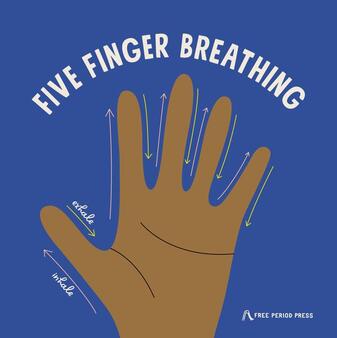 Hand/finger Breathing A great one for kids and adults alike. Hold up one hand in, stretching the fingers out. We are going to trace our fingers with our other pointer finger. Start at the thumb and trace it slowly from the bottom to the top of the thumb as you BREATHE IN, when you get to the top, trace the thumb slow down as you BREATHE OUT. Repeat this all the way along the fingers – repeat on the other hand if you need to. Journaling Either writing or use your voice memos on your phone. Sometimes we just need to get our thoughts out of our head to remind us you are not your thoughts, it is feelings, and what you feel is valid, but feelings will pass. Feel Good List When you are feeling good, write down a list of things that you enjoy or that make you feel good, then when you’re not feeling great you can look at the list and pick something… For some of us at HMC it’s nature, surfing, yoga, breathing, nature, music, swimming or hugging our kids/grandkids or a tree… 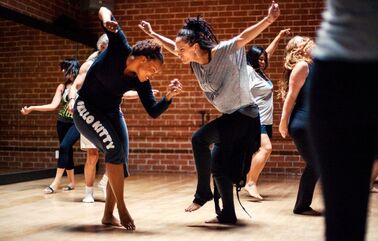 Move Movement or exercise can help you get out of your head… it releases good endorphins which can help shift your mood. The benefits of exercise/movement are epic. I say move because it doesn’t matter what you do, just start. Research has shown 10 minutes a day is helpful to shift your mood. That’s 3 songs if you like dancing, about 1 kilometre of walking, sweeping and mopping the floor (or half of it if you have big house), parking a bit further away to walk to the shops. Get creative but get moving. Try it! Sometimes I like to walk and talk into my voice memos, there is a feeling of moving forward from whatever is going on at that time for me. Sleep Taking care of your physical health supports your mental health as well. Due to the many aspects of sleep and anxiety, getting better sleep may help combat feelings of anxiety. Examples of possible changes include, building healthier sleep habits/hygiene, limiting stimulants such as caffeine and alcohol, relaxation techniques or breathing. Previous blogs on our HMC site include information the importance of sleep and sleep hygiene/routine and boosting our immune systems. The implementation of these small but powerful habits can have a big impact on how your body/mind responds to stressful situations. Diet Research has been shown that a healthy diet can assist with anxiety. A poor diet, which consists of foods with high sugar, salt and fat content, highly processed and low nutritional value, could lead to an increased risk of experiencing anxiety (amongst other things). Eating a balanced diet including fresh fruit, vegetables, whole grains, limited fat dairy, lean poultry and meant, legumes, seafood, nuts and delicious healthy oils can help to minimise anxiety. 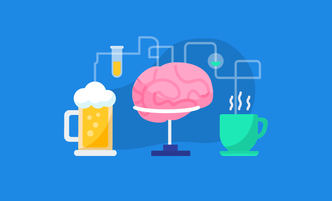 Alcohol and Caffeine These guys get their own tab. Alcohol is a depressant and caffeine has a half-life of 3-7 hours and as a result may make it difficult to sleep if consumed too late. I generally cannot have full caffeinated coffee after 11.30am to 12 noon. Due to the characteristics of alcohol and caffeine, they can aggravate anxiety or trigger panic attacks in certain people. Limit the intake, switch to decaf or try some alcohol-free or low alcohol options as an alternative. 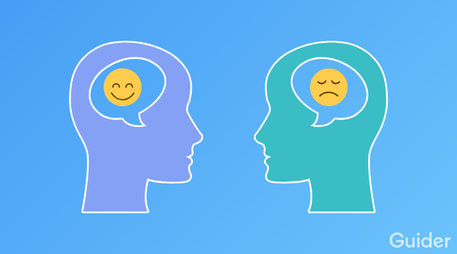 Self-talk or Observing your Thoughts Negative self-talk can be a challenging cycle to break or shift to a more positive self-talk. One way to do it is to think of what you might say to a child or to a dear friend that is having a hard time. Also, a reframing of the language can help to shift your perspective to understand that is not going to be forever. For example, instead of “I have anxiety, it’s just the way it is” we could try “I am experiencing some anxiety at the moment, it will pass. I will breathe and look for some tools to manage it.” Or instead of “I should not feel like this” try “I am learning how to manage this”. If this is interesting to you, it might be worth looking for a counsellor/psychologist etc, that works with Cognitive behavioural therapy (CBT) or Acceptance and Commitment therapy (ACT). By observing your thoughts, you can start to correlate triggers or patterns. This can be helpful to mitigate anxiety. For example, if I know I have a stressful situation coming up, I exercise beforehand. Over the years of trial and error, I have found that by exercising beforehand, I have a better handle on the situation, and I am more likely to respond, rather than react. Another question to ask yourself is “is it mine?”. We can sometimes find ourselves getting caught up in other people’s emotions/stresses etc. This is a very compassionate and empathetic way to be, however, is it really necessary to carry other people’s anxiety/stress around as well? This self-questioning is NOT a blame game, this is just a reminder to take a moment, a deep breathe and ask if this emotion is yours, if it is not than it is ok to let it go. If it is yours, then breathe again. Supplements that can support Some handy ones I keep in my handbag include - Emergency Bushflower essence, bach flower or rescue remedy drops, ashwagandha tablets, lavender oil. You should always speak to your doctor or health professional before starting on supplements as they may interact with certain medications and may be toxic to the body in large quantities and/or may not be suitable for you for various reasons.  Take some time for you You cannot pour from an empty cup, so what fills up your cup? Is it the soul nourishing humans you need to make a call to or is it that walk around the block that you missed to keep you grounded. Refer to your list of “feel goods” if you need to. Communicate with your family, friends, and your Team Reach out if you need to, chances are you know someone else who has also experienced anxiety to some level. One of the phrases I use is “Hi friend. I am currently experiencing some anxiety, could you please listen to me, I do/don’t need someone to solve my problem right now, I need someone to listen.” This statement may rustle a few feathers at first but the direct way of communicating means that person is aware of what you need right now in your current situation. There is no guessing. Not everyone has experienced anxiety and as it is such a unique experience, some people don’t know how to help when you reach out. If you are reaching out to them, it is likely they love you and will want to help. Try not to be shy about what you need at that time. Counting Sometimes counting can be helpful. Counting to 10 while taking some deep breathes can sometimes be a quick change from reactive to responsive. 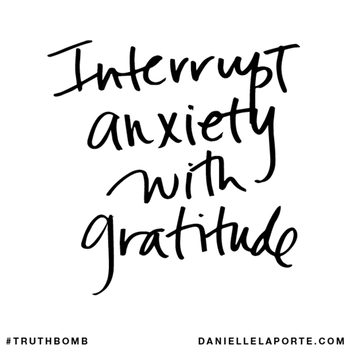 Gratitude Benefits of gratitude include enhancing mood, positive emotions and thoughts, better communication, improved physical health (including sleep) and more! This research has found that our brain releases dopamine and serotonin, which are two feel ‘good’ neurotransmitters when we express gratitude. In some studies, it has also shown to reduce pain and release toxic emotions. Sometimes I forget this, so for me to be accountable, I recruit a friend, at the end of each day we text each other 3 things we are grateful for… Eg. “Hi friend, today I am grateful for fresh water, friends and my dog”. I have some friends that do it with their children at the end of the day. Meditation Even just 5 minutes a day can make a difference – take that 5 minute of your screen/scrolling time and meditate instead… My favourite is ‘yoga nidra’ on you tube. A previous HMC blog is about Progressive Muscle Relaxation, which is also a goodie! 3-3-3 rule Look around you and name three things you can see, three things you can hear, three things you can feel. Also do a quick body scan and unclench anything that is clenched. Some common ones are your shoulders, jaw, pelvic floor or hands… Stay hydrated! If we are not hydrated enough, it can lead to restlessness, poor concentration, low energy and agitation.  Superman Power Pose Ok, this one is a bit far out but try it, do it on your own if you like but this pose – standing with your feet hip distance apart, hands on hips, chest out and eyes forward or slightly looking up – can help shift your mood. Podcasts There are a lot of good podcasts out there, take it all with a grain of salt and trial a few to see if they help. Some of my favs include the Huberman Lab, the Mindset Mentor, Ted talks, anything by Brene Brown, oh also sometimes you just need to laugh – so throw a funny one on and laugh until you feel lighter! How can osteopathy help? The mind-body connection is undeniable. Even for people who don’t experience anxiety, even just listen to your body when you are nervous about something or excited? Butterflies? Sweaty palms? Increase in heart rate? That’s your body responding to your mind. Some of the principles of osteopathy include:
With regards to anxiety, Osteopathy can help with working on:
Some previous blogs have some information that may be helpful including a progressive muscle relaxation, breathing, sleep and the lymphatic system… oh who am I kidding, they are all GREAT reads ☺ Remember you are worthy, you are not your thoughts and it will pass. You can only control what you can control, try not to spend too much (if any) time in the what ifs, and more time in gratitude. You don’t have to stay in this state of anxiety, it is often treatable. It is just a matter of exploring the best fit for you. Some of these lifestyle changes listed here may be enough to help. Or you may need to seek more help from the below resources or your GP or a counsellor. There is help available. Take care and be kind to yourself (and each other). Cheers Kirby ☺ Resources https://www.blackdoginstitute.org.au/resources-support/anxiety/ https://www.beyondblue.org.au/the-facts/anxiety/signs-and-symptoms https://www.lifeline.org.au/get-help/information-and-support/anxiety/ References and further resources below: https://www.hmcosteopaths.com/blogs http://www.thecalmcorner.com/2018/11/material-share-monday-5-finger-breathing.html https://positivepsychology.com/neuroscience-of-gratitude/ https://www.facebook.com/totalbalancehealth/photos/happiness-chemicalsim-sure-you-have-heard-about-all-these-different-chemical-com/3301269156585465/ https://dietitiansaustralia.org.au/wp-content/uploads/2016/07/NR06_pg014-anxiety-Tania-Matthewson.pdf https://www.sarahwilson.com/2017/01/interrupt-anxiety-with-gratitude/ https://www.sleepfoundation.org/mental-health/anxiety-and-sleep https://blog.ted.com/10-examples-of-how-power-posing-can-work-to-boost-your-confidence/
0 Comments
Leave a Reply. |
HMC TEAMIf you find something of interest that might suit this space, or would like information on a specific topic, let us know at hmcosteo@gmail.com
Archives
December 2023
Categories |
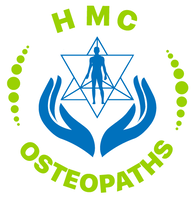
 RSS Feed
RSS Feed
